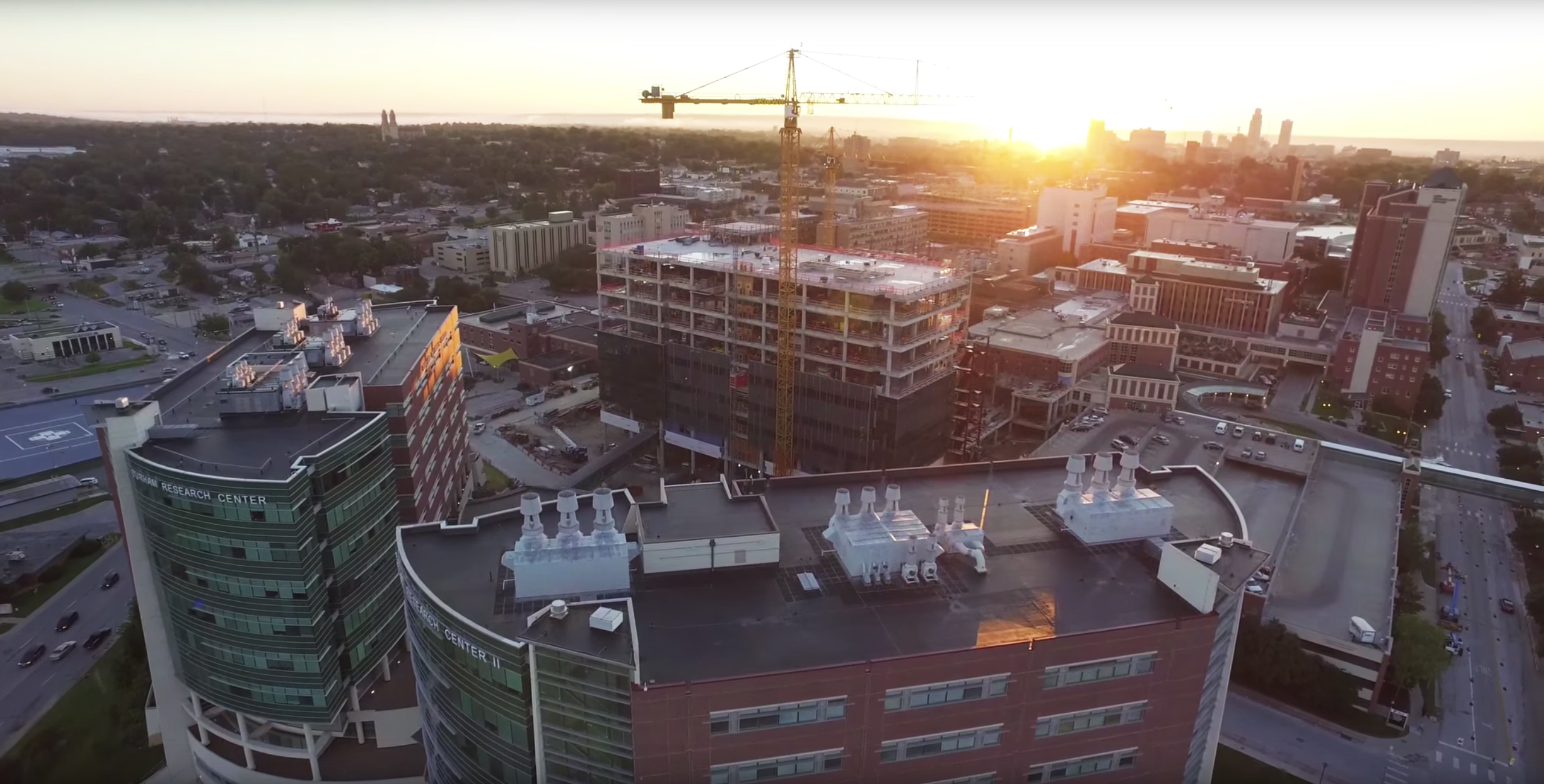UNMC/Nebraska Medicine announce new sustainability goals

Leaders of the University of Nebraska Medical Center and Nebraska Medicine have announced three lofty, but attainable, sustainability goals related to emissions, water and waste.
The goals – especially aggressive in such a specialized hospital/research setting – call for UNMC and Nebraska Medicine to:
- Become carbon neutral (net zero emissions) by 2030;
- Achieve zero waste by 2030; and
- Use less water than what falls on the main campus during an average rainfall year (currently 104 million gallons) by 2030.
“Achieving these goals will have a substantial, and positive, impact on the medical center’s budget, and more importantly, on the planet and people who live in the community,” said UNMC Chancellor Jeffrey P. Gold, M.D. “Reaching the goals won’t be easy, but they are achievable and work hand-in-hand with our mission to transform lives to create a healthy future for all.”
Last April, UNMC and Nebraska Medicine celebrated having using 25 percent less energy in 2015 than it did five years ago, despite adding more square footage to campus. In addition, the campus reduced both its peak electrical use and domestic water consumption, which conservatively equated to more than $10 million in money the medical center would have had to spend on utilities.
So, what savings do campus leaders anticipate by meeting their new goals? That’s difficult to estimate, they say, but emphasize that no new funds are budgeted for the initiative. Leaders, however, anticipate the initiative will yield greater efficiencies because of new technology, changes to infrastructure and using less resources.
“These goals not only make us strong stewards of taxpayer dollars, but set us apart from other academic health science centers in the country,” said Ken Hansen, associate vice chancellor of facilities at UNMC and vice president of facilities for Nebraska Medicine. “The challenging weather in our state only adds to the complexity of meeting the emissions goal.”
The goals are endorsed by the UNMC and Nebraska Medicine Executive Sustainability Council, which is committed to being an industry leader in sustainability.
Learn more about each goal:
Energy and emissions goals
Net zero carbon emissions requires low-energy buildings, but can use a combination of on-site, off-site renewable energy (wind and solar) to achieve a net zero carbon emission goal. All renewable generation doesn’t have to be on-site to achieve net zero or net positive carbon emissions.
Given that many campus buildings run 24/7, hospitals are one of the most energy intensive types of property, but UNMC and Nebraska Medicine can achieve its net-zero emissions goal by setting energy use intensity targets in new building construction, as well as doing energy updates (lighting, building controls, etc.) in existing buildings. In addition, the medical center supports the Omaha Public Power District’s renewable generation target of 50 percent by 2023, which impacts everyone in the region by burning less coal and creating less pollution.
Waste
The Zero Waste International Alliance and the National Recycling Coalition define zero waste as “diverting 90 percent of all discarded materials from landfill, incinerators, and the environment.”
Campus leaders say a zero waste goal – which excludes biohazardous waste – for UNMC/Nebraska Medicine is a bold goal, but acknowledge that new opportunities will exist as markets change and the campus will be poised to take advantage when they occur.
The medical center also is looking into composting its food waste, but the options for handling that material in a sustainable way are limited in the region today. To accomplish this goal, campus leaders say it likely will require a new economical and reliable outlet in the region.
“The diversity, breadth and volume of materials used on a campus such as the medical center creates an extremely complicated and difficult environment to achieve zero waste,” said Nebraska Medicine CEO Dan DeBehnke, M.D., M.B.A. “Non-patient care areas, of course, have more flexibility, and, although, much will need to change, both internally and externally, for us to achieve the 2030 goal, we are committed to making this happen.”
Water
The Net Zero Water Guidebook defines net zero water as “using only as much water as falls on your site and eliminating all water quality impacts from the site.”
With future medical center expansion and increased water use from mission-focused activities, campus leaders will focus on water use per square foot.
Campus leaders say this goal can be achieved by greater indoor and outdoor water efficiencies (ie: mechanical systems, water use monitoring), harvesting and reusing rainwater and condensation and creating additional retention ponds.
